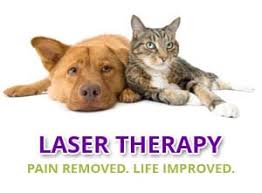Dentistry

Imagine what your mouth would feel like if you never brushed your teeth or went to the dentist. For many dogs and cats, this is a painful reality. According to the American Veterinary Dental Society, more than 80% of dogs and 70% of cats have dental disease by the age of 3. Dental (or periodontal) disease is the most frequently diagnosed health problem in pets.
Common signs of dental disease include:
Even if your dog or cat doesn’t have these symptoms, we recommend that you have a veterinarian evaluate your pet’s dental health at least once a year. Bacteria and food debris accumulate around the teeth and, if left unchecked, will lead to deterioration of the soft tissue and bone surrounding the teeth. This decay can result in irreversible periodontal disease, tooth loss, and possibly expensive oral surgery.
Dental disease can also affect other organs in the body: Bacteria in the mouth can get into the bloodstream and cause serious infections in the kidneys, liver, lungs, and heart. If these problems aren’t caught and treated quickly enough, they can result in death. A physical exam combined with appropriate laboratory work can determine if infection in the mouth has spread.
Schedule your pet’s dental exam today! We can also help show you how to brush your pet’s teeth and recommend foods and treats that will help combat plaque and tartar buildup.
Common signs of dental disease include:
- Yellow or brown buildup (tartar) on the teeth
- Red, swollen, or bleeding gums
- Bad breath
- Excessive drooling
- Changes in eating or chewing habits
- Pawing at the face
- Loose teeth
- Depression
Even if your dog or cat doesn’t have these symptoms, we recommend that you have a veterinarian evaluate your pet’s dental health at least once a year. Bacteria and food debris accumulate around the teeth and, if left unchecked, will lead to deterioration of the soft tissue and bone surrounding the teeth. This decay can result in irreversible periodontal disease, tooth loss, and possibly expensive oral surgery.
Dental disease can also affect other organs in the body: Bacteria in the mouth can get into the bloodstream and cause serious infections in the kidneys, liver, lungs, and heart. If these problems aren’t caught and treated quickly enough, they can result in death. A physical exam combined with appropriate laboratory work can determine if infection in the mouth has spread.
Schedule your pet’s dental exam today! We can also help show you how to brush your pet’s teeth and recommend foods and treats that will help combat plaque and tartar buildup.
Radiology (X-rays)

When we need to figure out what’s wrong with your pet, we routinely use x-rays to help identify the cause of the problem, rule out possible problems, or provide a list of possible causes. We may also use x-rays during a wellness exam to diagnose potential problems before they become serious. X-rays provide valuable information about a pet’s bones, gastrointestinal tract (stomach, intestines, colon), respiratory tract (lungs), heart, and genitourinary system (bladder, prostate).
We use radiology alone or in conjunction with other diagnostic tools. Interpretation of radiographs require great skill on the part of the veterinarian. We are proud to offer digital radiology (x-rays that are captured digitally rather than on film).
This state-of-the-art technology allows us to provide you with a quicker diagnosis for your pet. Plus, it uses less radiation than traditional x-rays. To avoid a blurry image, pets need to remain completely still while an x-ray is taken. In some cases, we may need to sedate your pet or use short-acting general anesthesia.
If you have any questions about our radiology service or what to expect during your pet’s procedure, please don’t hesitate to ask.
We use radiology alone or in conjunction with other diagnostic tools. Interpretation of radiographs require great skill on the part of the veterinarian. We are proud to offer digital radiology (x-rays that are captured digitally rather than on film).
This state-of-the-art technology allows us to provide you with a quicker diagnosis for your pet. Plus, it uses less radiation than traditional x-rays. To avoid a blurry image, pets need to remain completely still while an x-ray is taken. In some cases, we may need to sedate your pet or use short-acting general anesthesia.
If you have any questions about our radiology service or what to expect during your pet’s procedure, please don’t hesitate to ask.
Laser Therapy

Manage Pain, Reduce Inflammation, Speed Recovery The benefits of veterinary IIIt laser therapy are relatively new in the veterinary industry. Despite this, veterinarians are quick to adopt the technology as they see a marked improvement in their patient’s quality of life, and most notably in the reduction of pain and swelling and the increase in mobility.
MLS Laser Therapy Technology (multi wave lock system) is the most advanced laser therapy system on the market. Reduction of response times and therefore overall treatment times, distinguishes MLS Therapy from traditional laser therapy.
MLS Laser Therapy Technology (multi wave lock system) is the most advanced laser therapy system on the market. Reduction of response times and therefore overall treatment times, distinguishes MLS Therapy from traditional laser therapy.
|
10 Benefits of MLS Laser Therapy
|
MLS Laser Therapy effectively treats pain associated with:
|
|
Denton Animal Hospital
Located at 175 Haywood Street, Denton NC Phone: 336-859-2828 Email: dahpetvet@gmail.com Fax: 336-859-4004 Need Directions? |
Hours of Operation
Monday 8-5 Tuesday 8-5 Wednesday 8-12 Thursday 8-5 Friday 8-5 *Closed daily from 12:30- 1:30 Saturday- Closed Sunday- Closed |
IN CASE OF EMERGENCY
|
Site powered by Weebly. Managed by IDEXX Laboratories